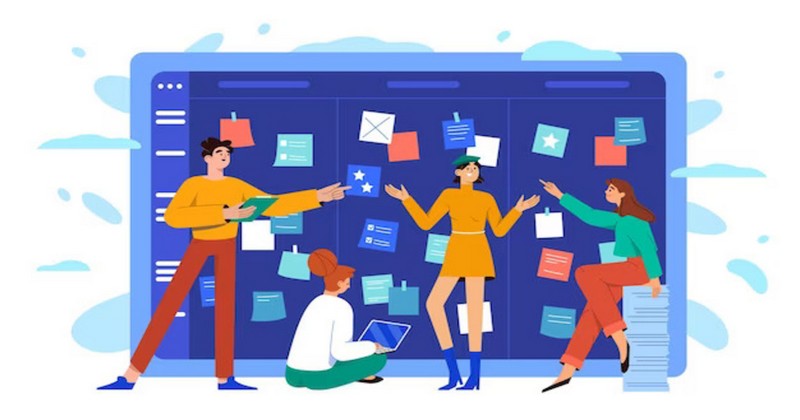Sorry Mother Forum
The advent of artificial intelligence (AI) has brought about a significant paradigm shift in how we interact with technology. One of the most profound impacts of AI has been in the realm of content generation, where machines can now produce high-quality, engaging, and informative content that rivals that created by humans. This shift has opened up new avenues for communication, education, and entertainment, but it also poses important questions about the future of content creation and the role of human creators in this new landscape.
At the heart of this discussion is the concept of AI-generated content, which refers to any form of content - text, images, videos, music, etc. - that is created or assisted by artificial intelligence algorithms. These algorithms can learn from vast amounts of data, understand patterns, and generate new content based on this understanding. In the context of text, for example, AI can produce articles, stories, and even entire books that are not only coherent but also engaging and well-structured.
The Evolution of Content Generation
The evolution of content generation technology has been rapid. Early attempts at generating content using AI were often cumbersome and resulted in outputs that were clearly machine-generated, lacking the nuance and depth that human creators bring to their work. However, with advancements in machine learning and natural language processing (NLP), AI-generated content has become increasingly sophisticated. Today, AI can tailor content to specific audiences, incorporate complex ideas, and even mimic the style of particular authors or genres.
This capability has far-reaching implications. On one hand, AI-generated content can help address the demand for high volumes of content in digital marketing, education, and media, offering a solution to the challenge of producing engaging, high-quality material on a consistent basis. It can also assist human creators by automating routine tasks, such as data aggregation or initial drafts, allowing them to focus on higher-level creative decisions and deeper, more complex aspects of their work.
Challenges and Concerns
Despite the benefits, the rise of AI-generated content also raises several challenges and concerns. One of the most significant is the issue of authorship and ownership. When content is generated by a machine, who owns the rights to that content? Is it the developer of the AI algorithm, the person who commissioned the content, or someone else entirely? This question has significant implications for copyright law and our understanding of intellectual property in the digital age.
Another concern is the potential for AI-generated content to be used for disinformation or propaganda. Sophisticated AI algorithms can produce convincing fake news stories, social media posts, or other forms of content that are designed to deceive or manipulate public opinion. This capability poses a threat to democratic institutions, public discourse, and social cohesion, highlighting the need for robust fact-checking mechanisms and media literacy.
The Role of Human Creators
In the face of these developments, it’s essential to consider the ongoing role of human creators. While AI can generate content that is informative and engaging, it lacks the depth, empathy, and personal experience that humans bring to their creative work. Human creators can offer unique perspectives, challenge assumptions, and produce content that resonates with audiences on a deeper level. Moreover, the process of creation itself - the struggle, the exploration, the intuition - is a fundamentally human experience that AI systems, no matter how advanced, cannot replicate.
Looking Forward
As we move forward in this new landscape, it’s clear that AI-generated content is here to stay. The key to harnessing its potential while mitigating its risks will be to develop a nuanced understanding of what AI can and cannot do, and to establish clear guidelines and regulations around its use. This includes developing ethical standards for AI development, ensuring transparency about when content is AI-generated, and supporting education and media literacy programs that help the public critically evaluate the information they consume.
In conclusion, the advent of AI-generated content marks a significant shift in how we produce, consume, and interact with information. While it presents numerous opportunities for innovation and efficiency, it also challenges our understanding of creativity, authorship, and the role of human creators. By embracing this technology while addressing its challenges, we can unlock new possibilities for expression, education, and connection, ensuring that the benefits of AI-generated content are realized for all.
What are the main benefits of AI-generated content?
+The main benefits of AI-generated content include the ability to produce high volumes of content quickly, automate routine tasks, and assist human creators in focusing on higher-level creative decisions. It can also offer personalized content tailored to specific audiences and incorporate complex ideas in a coherent manner.
What are the concerns surrounding AI-generated content?
+Concerns include issues of authorship and ownership, the potential for AI-generated content to be used for disinformation, and the impact on human creators and the value of human-generated content. There are also ethical considerations around the use of AI in content creation and the need for transparency about when content is AI-generated.
How can we ensure the responsible use of AI-generated content?
+Ensuring the responsible use of AI-generated content involves developing and adhering to ethical guidelines, promoting transparency about the use of AI in content creation, supporting education and media literacy programs, and establishing clear regulations and standards for AI development and deployment.
As we continue to navigate this evolving landscape, embracing the potential of AI-generated content while safeguarding against its risks will be crucial. By doing so, we can harness the power of AI to enhance human creativity, improve information accessibility, and foster a more informed and engaged global community.
